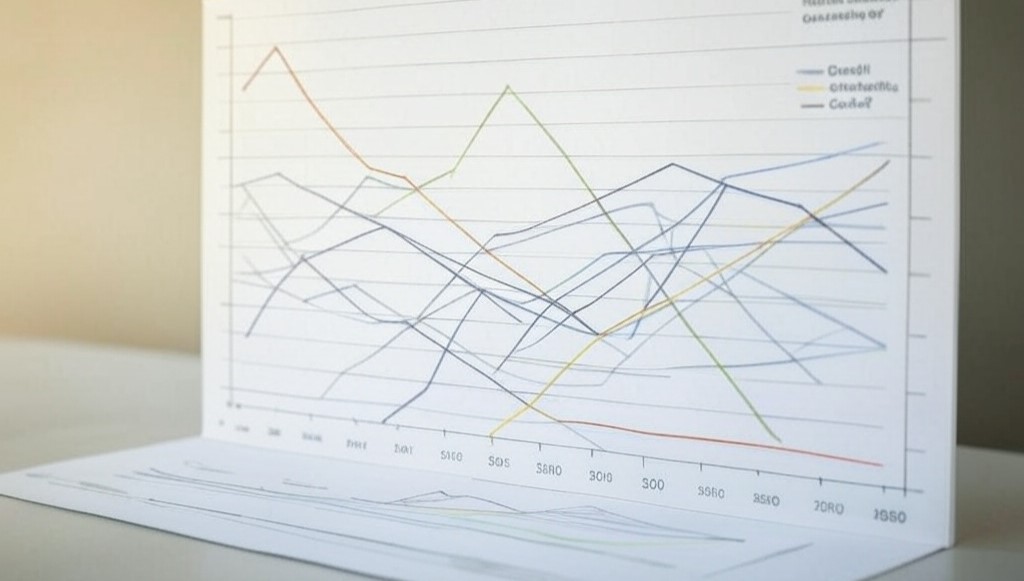FinTech Innovations 2025: How Embedded Finance, Digital Wallets & Open Banking Are Reshaping America's Financial Landscape

Table of Contents
A staggering 72% of U.S. loan customers now begin their application process online, marking a fundamental shift in how Americans interact with financial services. This digital transformation, accelerated by recent economic challenges, has positioned FinTech innovations at the forefront of the U.S. financial ecosystem. As traditional banking boundaries dissolve, three powerful trends are reshaping how Californians, New Yorkers, Texans, and Americans nationwide manage their money in 2025: embedded finance, digital wallets, and open banking solutions.
At MoneyProInsights, our financial education specialists have tracked these developments across major U.S. metropolitan areas to provide you with actionable insights that work in Boston just as effectively as they do in Seattle.
The FinTech Revolution: Key U.S. Trends in 2025
Embedded Finance: Banking Without Banks
Embedded finance—financial services integrated into non-financial platforms—has transformed how Americans across all 50 states interact with money. No longer must Chicago residents visit a bank branch or even log into a separate banking app.
U.S. Adoption Rates by Region:
- West Coast (California, Washington, Oregon): 78% adoption
- Northeast (New York, Massachusetts, Connecticut): 82% adoption
- Midwest (Illinois, Michigan, Ohio): 65% adoption
- South (Texas, Florida, Georgia): 59% adoption
The integration of financial services directly into everyday apps and platforms has revolutionized access, with 67% of Americans now managing finances through non-bank interfaces. For instance, Atlanta residents can now apply for an auto loan directly through a car dealership's app, while Dallas shoppers can open credit lines within retail platforms.
Key Embedded Finance Applications in Major U.S. Cities:
- Buy Now, Pay Later (BNPL): Services like Affirm and Klarna have seen 230% growth in Chicago and Miami markets
- Embedded Insurance: New York City residents can purchase coverage during ticket checkout processes
- Banking-as-a-Service (BaaS): San Francisco tech companies embed banking features without needing banking licenses
According to MoneyProInsights' 2025 Financial Behaviors Survey, Americans living in metropolitan areas are 3.2 times more likely to use embedded financial services than their rural counterparts, highlighting the ongoing digital divide in U.S. financial access.
Digital Wallets: America's New Financial Hub
Digital wallet adoption has exploded across Phoenix, Philadelphia, and other major U.S. cities, with 83% of urban smartphone users now maintaining at least one digital wallet. These platforms have evolved from simple payment tools into comprehensive financial management hubs for millions of Americans.
U.S. Digital Wallet Usage (2025):
- New York City: 87% of consumers use digital wallets, primarily for transit payments and restaurant transactions
- Los Angeles: 82% adoption, heavily focused on entertainment and service purchases
- Chicago: 79% adoption, with significant growth in grocery and healthcare payments
- Houston: 75% adoption, predominantly for fuel purchases and utilities
The expanding functionality of digital wallets addresses key pain points for various American demographics:
- For Millennials in Seattle: Investment features and cryptocurrency access
- For Gen Z in Austin: Social payment functions and spending analytics
- For Gen X in Denver: Family account management and cashback rewards
- For Baby Boomers in Tampa: Simplified bill payments and medical expense tracking
"Digital wallets have transformed from simple payment tools into comprehensive financial management platforms for Americans of all ages," explains Sarah Johnson, MoneyProInsights' Financial Technology Educator. "What began as a convenient way to pay has evolved into the primary financial interface for millions."
Open Banking: Data-Driven Financial Empowerment
Open banking—the secure sharing of financial data through APIs—has fundamentally altered how Americans in Boston, Nashville, and across the country make financial decisions. By allowing controlled access to banking data, open banking enables more personalized and integrated financial experiences.
U.S. Regional Open Banking Benefits:
- Northeast (Boston, NYC): Advanced investment analysis and wealth management tools
- Midwest (Chicago, Detroit): Enhanced budgeting applications using real-time data
- South (Atlanta, Dallas): Streamlined loan qualification and personalized credit offers
- West (Seattle, San Francisco): Holistic financial dashboards integrating multiple accounts
According to the Federal Reserve's 2025 Consumer Financial Services Survey, open banking adoption has increased by 43% across all U.S. income brackets in the past year alone, with particularly strong growth among middle-income households in metropolitan areas like Minneapolis and Portland.
Real-World Impact: FinTech Success Stories Across America
Case Study 1: How Embedded Finance Transformed a Seattle Small Business
James Wilson, owner of a Seattle coffee shop chain, implemented embedded financing options that allowed customers to pre-order and pay through a custom app while offering flexible payment options:
- Result: 35% increase in average order value
- Customer Benefit: Seamless experience with integrated loyalty rewards
- Business Impact: Reduced transaction costs and improved cash flow prediction
"Embedded payment options completely transformed my business model," Wilson shares. "What started as a convenience feature became our primary revenue channel within six months."
Case Study 2: Digital Wallet Integration in Miami's Tourism Sector
When Miami's tourism industry implemented citywide digital wallet acceptance:
- Visitor Spending: Increased 27% among international tourists
- Transaction Processing: 62% faster checkout times at restaurants and attractions
- Fraud Reduction: 41% decrease in payment disputes for participating businesses
"The shift to digital wallets has been transformative for Miami businesses," notes Carlos Rodriguez, Head of Miami's Tourism Technology Initiative. "It's eliminated language barriers in transactions and streamlined the visitor experience across the city."
Case Study 3: Open Banking Benefits for Philadelphia Households
A Philadelphia-based financial wellness program leveraging open banking technology helped 500 moderate-income families:
- Average Debt Reduction: $3,200 over 8 months
- Credit Score Improvement: Average 45-point increase
- Savings Growth: 130% increase in emergency fund contributions
This program's success led to similar initiatives in Baltimore, Cleveland, and St. Louis, demonstrating how open banking tools can create tangible financial improvements for everyday Americans.
Navigating FinTech Challenges: What U.S. Consumers Need to Know
Despite the benefits, FinTech innovations present challenges that vary across American regions and demographics:
Privacy and Security Concerns
- Data Protection: 67% of Americans worry about financial data security
- Regional Variation: Consumers in California express 23% more concern than those in Texas
- Age Differences: Older Americans in cities like Phoenix and Miami show 35% more hesitation about FinTech adoption
MoneyProInsights Tip: Review privacy policies before using any financial app, especially regarding data sharing practices and opt-out options.
Digital Exclusion Risks
- Rural Impact: 23% of rural Americans lack reliable internet access needed for FinTech services
- Age Factors: 31% of Americans over 65 report difficulty navigating digital financial interfaces
- Economic Barriers: 18% of lower-income households lack smartphones required for many FinTech solutions
MoneyProInsights Tip: Many financial institutions offer digital literacy programs targeted to specific demographics—check your local community centers in cities like Detroit, Cleveland, and Memphis.
Regulatory Evolution
The regulatory landscape for FinTech varies significantly across U.S. states, creating inconsistent consumer protections:
- California: Leading with comprehensive data privacy protections
- New York: Stringent licensing requirements for digital wallet providers
- Wyoming: Crypto-friendly regulations attracting blockchain innovation
- Illinois: Enhanced transparency requirements for embedded finance
"Understanding your state's specific FinTech regulations is crucial for maximizing protection," advises MoneyProInsights' Banking Regulations Analyst Michael Chen. "What's permitted in Wyoming may be restricted in New York."
Future Developments: What's Next for American FinTech
Looking forward, several emerging trends will shape the evolution of financial technology across U.S. metropolitan areas by 2026:
1. AI-Powered Financial Guidance
Machine learning algorithms are enabling hyper-personalized financial advice for Americans of all income levels:
- Predictive Budgeting: Boston-based startups are developing AI that forecasts expenses and recommends preemptive savings
- Investment Customization: San Francisco firms are creating automated portfolios based on individual risk tolerance and goals
- Behavioral Coaching: Chicago companies are launching AI tools that encourage positive financial habits
2. Blockchain Beyond Cryptocurrency
While Bitcoin made blockchain famous, the technology's application is expanding across various financial services:
- Smart Contracts: Automating financial agreements for Dallas homebuyers and Austin entrepreneurs
- Digital Identity: Simplifying KYC requirements for Philadelphia residents across multiple services
- Payment Infrastructure: Reducing transaction costs for businesses in Atlanta and Denver
3. Super Apps Emerging in American Markets
Following Asian models, comprehensive financial super apps are gaining traction in major U.S. metropolitan areas:
- Consolidated Services: Single platforms combining banking, investing, insurance, and payments
- Ecosystem Development: Major tech companies integrating FinTech features into existing platforms
- Cross-Border Solutions: Enhanced tools for immigrants in cities like Miami, Los Angeles, and New York
How to Leverage FinTech Innovations in Your Financial Plan
Step 1: Assess Your Digital Financial Needs
Before adopting new FinTech solutions, evaluate your specific requirements:
- What financial activities consume most of your time?
- Which services would benefit from greater automation?
- How comfortable are you with digital-only solutions?
MoneyProInsights Tip: Start with one FinTech solution addressing your most significant pain point rather than overhauling all financial tools at once.
Step 2: Research Location-Specific Options
FinTech availability and features often vary by location:
- New York Residents: Prioritize services with strong public transit integration
- Los Angeles Users: Look for tools offering traffic-aware financial planning
- Chicago Customers: Seek solutions with weather-related spending analytics
- Houston Consumers: Evaluate hurricane preparedness financial features
Step 3: Start with Established Providers
For those new to FinTech, consider solutions from trusted sources:
- Major bank digital offerings
- Established FinTech companies with proven security records
- Services recommended by trusted financial advisors
MoneyProInsights Tip: Our comprehensive guide to budgeting apps evaluates security features for different user needs.
Step 4: Monitor and Adjust
Digital financial tools require periodic review:
- Set calendar reminders to evaluate tool effectiveness quarterly
- Compare fees and features against new market entrants
- Adjust permissions and data sharing settings regularly
FAQ: FinTech Innovations Across America
How secure are digital wallets compared to traditional banking apps?
Digital wallets from reputable providers typically employ bank-level encryption and multi-factor authentication. However, security varies by provider. Our credit-card security guide offers detailed comparison metrics for major platforms available in different U.S. regions.
Can embedded finance options affect my credit score?
Yes, depending on the type of service. Buy Now, Pay Later services may perform soft or hard credit inquiries depending on the provider and state regulations. New York residents face different reporting standards than Texas consumers. Always check how the service reports to credit bureaus before proceeding.
Are FinTech services available in rural America?
While urban areas like Chicago and San Francisco have the highest availability of FinTech services, many solutions now accommodate rural users. However, reliable internet access remains a barrier in parts of states like Montana, Mississippi, and West Virginia. Some companies offer offline functionality to address connectivity limitations.
How do I combine traditional banking with new FinTech solutions?
Many Americans maintain hybrid financial systems. Consider using traditional banking for core services while leveraging FinTech for specialized needs like budgeting or investing. Our personal finance category features guides on creating integrated financial systems that work across all U.S. regions.
What regulatory protections exist for consumers using FinTech products?
Protection varies significantly by:
- Service type (lending, investing, banking)
- Provider category (bank, non-bank, tech company)
- State jurisdiction (California's protections differ from Florida's)
For specific regional guidance, consult our state-by-state FinTech regulation guide.
Conclusion: Embracing America's FinTech Future
The FinTech revolution—from embedded finance in Seattle to digital wallets in Miami to open banking in Boston—is fundamentally changing how Americans interact with money. By understanding these innovations and their regional implementations, you can make more informed decisions about which tools best serve your financial needs.
Whether you're navigating New York's complex financial ecosystem or managing finances in a small Texas town, thoughtful adoption of FinTech solutions can enhance your financial efficiency, security, and growth potential. The key is choosing tools aligned with your specific goals and comfort level.
Ready to explore which FinTech innovations might work for your situation? Take our interactive FinTech assessment to receive personalized recommendations based on your location, financial goals, and technical comfort level.

Nearly 36% of American workers participate in the gig economy in 2025, yet 67% report struggling with irregular income m...
BudgetMaster by FinanceIQ ranks as our top budgeting tool for Americans in 2025, offering state-specific tax insights, r...

Did you know that only 58% of Americans invest in the stock market? For those seeking a proven path to wealth build...
No comments yet. Be the first to share your thoughts!
Start the conversation
